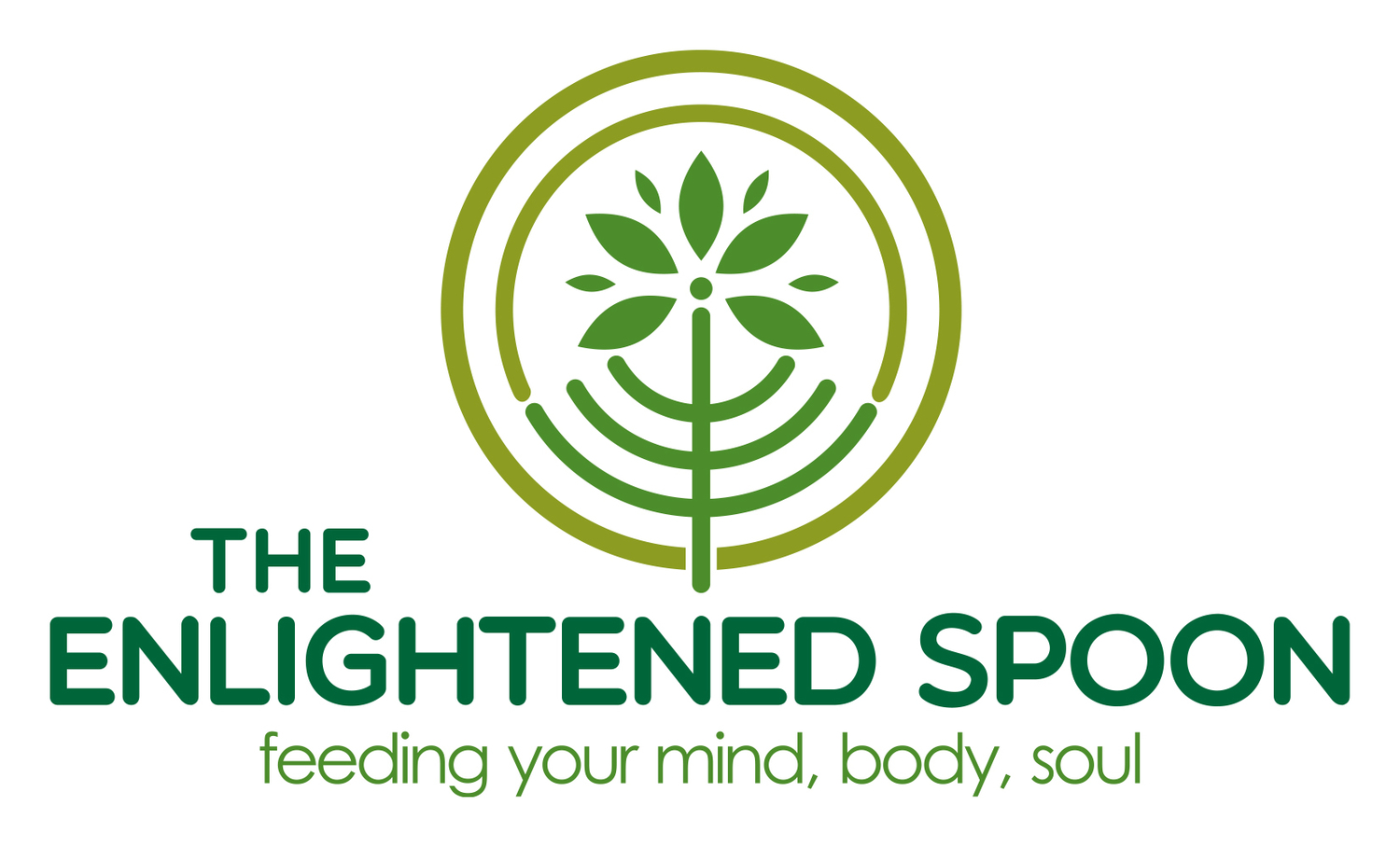5 Awesome Ways Plant Foods Boost You Through Your Day
/I started this article as a guest-post in the newsletter for one of my favourite lunch delivery places in Amsterdam - Cropbox! Turns out I ran over their word count and wasn’t able to include a list of all the delicious plant foods you can get all the following amazing nutrients from. Oops.
So I’ve posted a slightly extended version of the article here that includes the info I missed. I figured you might find this piece handy too - plus, there’s a free download for the 7 key nutrients often lacking in plant-based diets and which plant foods to get them from at the end of this article.
The good guys at Cropbox deliver lunch boxes within Amsterdam centrum 3x a week. They aren’t just your regular salad boxes - they’re packed full of plant-based, mostly gluten-free, whole-food awesome goodness... Plus, Dominique and her team are super friendly and accommodating, and always put their customers first.
So… Why are plant-based foods so good for you? Here are 5 ways they help turbo-boost you through your busy day:
1. Phytonutrient Boost!
Plants are packed full of phytonutrients - chemicals they produce to protect themselves from bugs and UV radiation from the sun. These chemicals that protect plants also have antioxidant, anti-ageing, anti-inflammatory, immune-boosting, disease prevention properties for humans and have been found to reduce cancer, heart disease, diabetes, obesity, calm the nervous system and help digestive issues. [1, 2]
“Phytonutrients” typically refer to these chemicals [2]:
- Polyphenols
- Terpenoids
- Resveratrol
- Flavonoids
- Isoflavonoids
- Carotenoids
- Limnoids
- Glucosinolates
- Phytoestrogens
- Phytosterols
- Anthocyanins
- Omega-3 fatty acids
- Probiotics
- Phytonutrients are mostly found in the skin of fruit and veggies, so eat a rainbow of colours to ensure you’re getting a good mix! This is why the global “5 a day” campaigns push for at least 5 portions of fruit & veggies daily. “12 - 15 a day” is better, since 5 is just the minimum - but as long as you get a wide variety of colours in your daily intake, that’s already a great start.
2. Macronutrient Boost!
Macronutrients are the essential building blocks we need for energy and to function properly: carbohydrates, proteins and fats. Eating a wide variety of plants and in combination with each other enhances the macronutrient boost they give (once again, “5 a day” or more comes into play!):
Carbohydrates - Provide fast, readily accessible energy for our bodies in 3 main forms:
Sugars - Broken down into glucose for energy (simple carbs).
As found in fruit.
Starches - Broken down into glucose for energy (complex carbs). As found in:
Beans & legumes eg. kidney, black, pinto, black-eyed peas, split peas, chickpeas.
Starchy vegetables eg. potatoes, corn, green peas, parsnips.
Whole grains eg. brown rice, oats, barley, quinoa.
Fibre (complex carbs)
Insoluble: which helps move food through your gut. Uh-huh, you get better poos. Yup, I said it.
Soluble: which helps lower cholesterol, manage food cravings and energy levels.
As found in:
- Whole grains eg. whole grain breads, cereals, crackers.
- Beans & legumes eg. kidney, black, pinto, black-eyed peas, split peas, chickpeas.
- Nuts & seeds eg. flax seeds, chia seeds, almonds, hazelnuts.
- Fruit & Vegetables: Eat a rainbow! [3]
Proteins - The building blocks of life and required round-the-clock to build and repair cells. Made up of amino acids in the form of essential (we can't make these nor survive without them, non-essential (we can make these) and conditional (we can make these if required) amino acids. Good sources of plant protein include the following:
Beans & legumes eg. kidney, black, pinto, black-eyed peas, split peas, chickpeas.
Nuts & seeds eg. flax seeds, chia seeds, almonds, hazelnuts, walnuts.
Tofu, tempeh, miso and other soy products. [4]
Fats - Required for energy; good brain health; healthy skin and nails; absorption of fat-soluble vitamins A, D, E, K; inflammation regulation; hormone production, and body insulation for warmth. Fats we need are broken down into essential fatty acids (we can’t make these nor survive without them), and include saturated and unsaturated (polyunsaturated and monounsaturated) fats:
Omega 3 (essential - polyunsaturated)
Walnuts (nut & oil), flax seeds, chia seeds, algae, spirulina.
Omega 6 (essential - polyunsaturated)
Nuts & seeds eg. almonds, pecans, hazelnuts, Brazil, walnuts, sesame seed, pumpkin seeds, sunflower seeds, including their oils.
Omega 9 (monounsaturated)
Olive oil, macadamia oil, soybean oil
Avocado (inc. oil).
Nuts & seeds eg. almond, hazelnut, sunflower.
Saturated Fats
Coconut (inc. oil), palm oil. [5]
3. Micronutrient Boost!
Micronutrients like vitamins and minerals play a role in many bodily functions ranging from being essential co-factors to chemical processes in the body that keep us alive; boosting immunity; cell growth and reproduction; detoxification; bone health; stress management, and mood and behaviour regulation amongst many others. All plants contain a variety of the following micronutrients:
Vitamins
Water-soluble: vitamins B1, B2, B3, B5, B6, B9, B12, C.
Fat-soluble: vitamins A, D, E, K1, K2.
Minerals
Magnesium, potassium, zinc, iron, calcium, copper, chromium, selenium, manganese, boron, amongst many others.
Eating a wide variety of plant foods ensures you get your daily vitamin and mineral boost!
4. Alkaline Boost!
With today’s stressful, busy lifestyles and poor dietary choices with loads of acidic-forming foods (coffee, alcohol, sodas, sugary foods, dairy, meat, processed junk food, smoking), our body is working overtime to bring itself back into balance again.
An overly acidic internal environment leads to a highly inflammatory state which becomes a playground for the start of diseases like cancer, diabetes, heart disease, etc. This is why there’s a big push today to include more alkaline foods to help counteract the excess acidity. [6]
Raw fruit and veggies are alkaline in nature, giving you just that alkaline boost you need.
5. Environmental Boost!
A lesser known perk of a plant-based diet is its environmental benefit. Research has shown that the non-vegetarian diet compared with the vegetarian diet requires:
2.9x more water
2.5x more energy
13x more fertilizer
1.4x more pesticides [7]
So, you’re making a difference by using less energy and resources by choosing a plant-based diet.
Even if you’re not a full-time vegetarian, increasing your plant intake while decreasing your animal product intake is already doing your health and the world so much good. Start with one meal a day like your Cropbox lunches, and your body will reap so many benefits.
You could slowly increase that to 2 - 3 plant-based meals a day, joining the #meatfreemonday movement where you dedicate just one day a week, Monday, to going meat-free/ plant-based.
If you’re thinking of switching over to a more plant-based diet and not sure where to start, an all-too easy mistake to make is turning into a “carbo-tarian” (!) - eating only pasta/ rice/ noodles and carbs to fill you up, or snacking on loads of sweet treats for a calorie boost. Rather, look at nutrient-dense plant foods that give you a mix of the macro and micronutrients you need.
Free Download: 7 Key Nutrients For Plant-Based Diets
To avoid these mistakes, here’s a free download of 7 key nutrients to keep in mind that can easily be lacking in plant-based diets to start you off, including which plant foods to get them from, ensuring you get a good mix of all that the plant world has to offer.
More plant-based recipes can also be found in the recipe section of this site, or on Instagram if you need some inspiration.
Also - let me know how you get on with adding more plant foods. Are you enjoying it or do you face some struggles with it, and if so what are they? Feel free to comment below or send me a message through the Facebook page or contact form on this site.
Take care and have a great day!
REFERENCES:
Vasanthi HR, ShriShriMal N, Das DK. (2012). Phytochemicals from plants to combat cardiovascular disease. Available: http://www.ncbi.nlm.nih.gov/pubmed/22414106
Gupta C, Prakash D. (2014). Phytonutrients as therapeutic agents. Available: http://www.ncbi.nlm.nih.gov/pubmed/25051278
Wax E, Zieve D, Ogilvie I. (2016). Carbohydrates. Available: https://medlineplus.gov/ency/article/002469.htm
Wax E, Zieve D, Ogilvie I. (2015). Protein in diet. Available: https://medlineplus.gov/ency/article/002467.htm
Chen M, Zieve D, Ogilvie I. (2014). Dietary fats explained. Available: https://medlineplus.gov/ency/patientinstructions/000104.htm
Schwalfenberg G. (2012). The Alkaline Diet: Is There Evidence That an Alkaline pH Diet Benefits Health? Available: http://www.ncbi.nlm.nih.gov/pmc/articles/PMC3195546/
Marlow HJ, Hayes WK, Soret S,. (2009). Diet and the environment: does what you eat matter? Available: http://ajcn.nutrition.org/content/89/5/1699S.short
















